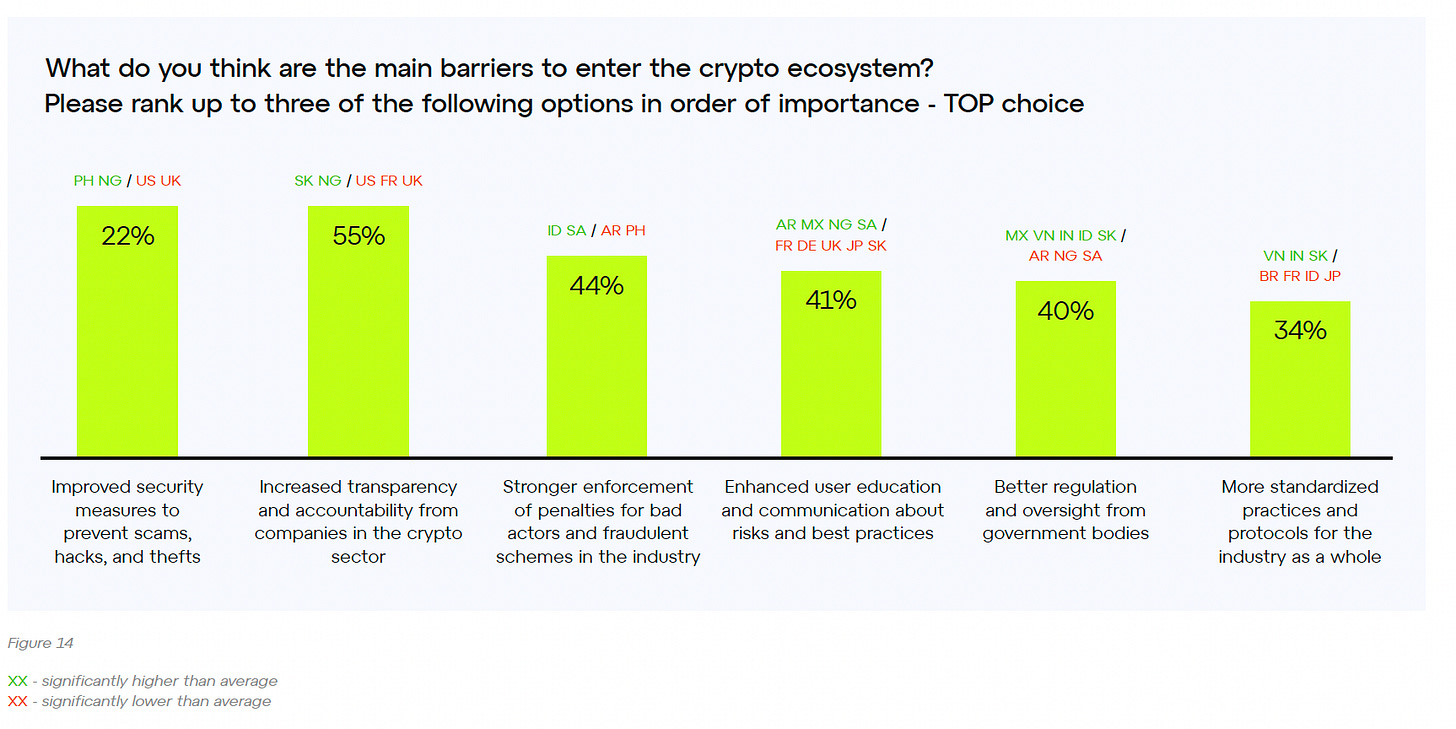Duty of Care as a Catalyst for Change in DeFi

The years 2022 and 2023 have been dominated by regulatory actions and uncertainties in the crypto space. There has been criticism regarding how DeFi and NFT projects have misled users and investors, as well as how DAOs have been orchestrating what's been called ‘decentralization theater.’
Against this backdrop, enforcement agencies are intensifying their focus on those responsible for significant financial losses related to DeFi. Traders engaged in insider trading and market manipulation activities in the form of pump and dump by whales, spoofing, wash trading, and fake news are attracting increased scrutiny from regulators.
Drawing from my past experience as a securities market investigator, I've come to realize that greed is a constant, whether in TradFi or DeFi. There will always be investors who will invest in projects they don't know much about simply because they've heard it's ‘going to the moon.’ On the flip side, individuals who end up accused of causing investor losses frequently begin their ventures with the best of intentions, only to find themselves veering off course as events unfold. This blend of unethical actions and uninformed greed has eroded public trust.
According to a global survey conducted by ConsenSys earlier this year, 55% of the 15,158 respondents—ranging in age from 18 to 65 and hailing from 15 countries across North and South America, Europe, Africa, and Asia—identified greater accountability and transparency as a top priority in the crypto space. Following this, 44% called for stronger enforcement against bad actors, and 41% advocated for better education and communication about risks and best practices.

If I were a developer in the crypto and web3 space, the current wave of regulatory actions would make me anxious. The looming uncertainty would have me questioning whether the code I'm writing today could lead to legal issues down the road. This ambiguity doesn't just stifle innovation; it also dampens creativity.
So, what can DeFi developers do to shield themselves from the unpredictable outcomes of their code and the ever-changing regulatory landscape?
What Can DeFi Developers Do?
As I pondered the challenges facing DeFi developers, a legal principle I learned during my first year of university resurfaced: the concept of 'duty of care.' This led me to question why we rely on courts and regulations to enforce what should be a natural human inclination—taking care of one another. In a society increasingly driven by financial incentives, could we shift to a self-enforcing community where the 'duty of care' becomes a shared human responsibility? After all, isn't this ethos of mutual care part of what this financial revolution aims to achieve?
What if developers incorporated this principle into their protocol design and coding practices? It could act as a safeguard against future regulatory shifts and set them apart from those who don't consciously apply this principle.
While the focus of this article is primarily on DeFi, it's important to recognize that the principles discussed extend beyond this sector. As web3 technologies evolve, the values of accountability, transparency, and care will become increasingly relevant across a range of applications and protocols. In this context, DeFi serves as a catalyst, setting the stage for broader changes in crypto and web3.
Just to clarify, I'm not a regulator or a legal expert. My views are shaped by my own experiences in the crypto space and building on my background in securities regulation. Consider this a thought experiment, and let's see where it takes us.
What is Duty of Care?
In Commonwealth law, duty of care is a legal principle that establishes a person's obligation to act in a reasonable manner to prevent harm to another individual or entity. This principle is most often invoked in tort law, particularly in cases of negligence.
The idea is to establish a standard of care that a ‘reasonable person’ would adhere to in a given situation. If someone fails to meet this standard and their actions result in harm to another, they could be found liable for negligence.
The concept of duty of care can be applied in various contexts, such as medical care, product manufacturing, and even in relationships between employers and employees. It serves as a guideline for determining liability and is often used by judges to assess whether an individual or organization acted responsibly.
Duty of Care in Commonwealth Law
Let's look at an example that illustrates the concept of duty of care. In the famous 1932 case of Donoghue v Stevenson, Mrs. Donoghue found a decomposed snail in a bottle of ginger beer. She sued the manufacturer, Mr. Stevenson, for negligence. The House of Lords held that Stevenson owed Donoghue a duty of care, which he breached by failing to ensure the product's safety, thereby causing her harm.
Now, what are the odds of finding a snail in a bottle of ginger beer? The likelihood is extremely low, yet this rare event led to a landmark legal case. Imagine the implications for developers in DeFi when the outcome of their code is scrutinized in a similar manner.
Now that we've established what duty of care means in a legal context, let's explore how this principle can serve as a foundational basis in DeFi, rather than a legal standard.
Practical Application
Setting aside market misconduct, exploits and rug pulls have already cost investors billions of dollars. While there have been instances where funds were swiftly recovered, these events remain a significant cause for concern.
It's worth noting that DeFi is still in its nascent stages. Even with rigorous code audits, buggy smart contracts can slip through, and hackers are continually looking for ways to exploit these vulnerabilities.
Currently, developers already engage in practices like thorough documentation, code audits, and maintaining a level of transparency on a varied spectrum. They also focus on investor education, accountability, and learning from both successes and failures. Legal experts are often consulted to navigate the complex regulatory landscape.
However, constraints on time and resources make it challenging for developers. These challenges are compounded by the inherent complexities of blockchain development and an ever-changing regulatory landscape. On one hand, developers must make design choices and architectural decisions; on the other, they must anticipate potential legal challenges in the future.
This balancing act is not sustainable. It's especially challenging for those genuinely committed to shaping a new financial paradigm. As we consider this, it's crucial to recognize that the very ethos of DeFi is in harmony with the evolutionary principles that govern our universe. In a world where everything is interconnected, the decentralized nature of DeFi resonates with the natural order of things. This is where the concept of 'holons' from Integral Theory comes into play, emphasizing that we are both individual entities and part of a larger whole.
This understanding leads us to a pivotal shift: Why not transition from a 'fear-based' approach, which is primarily about compliance and avoiding legal repercussions, to a 'care-based' approach? In other words, moving from a reactive stance to a proactive one, a shift from being held 'responsible' to being 'response-able.’
Response-able vs Responsible
In the traditional sense, being ‘responsible’ often implies taking action or being accountable for outcomes. However, in the evolving landscape of DeFi, why not shift towards being ‘response-able,’ a term that captures a more nuanced understanding of developers’ role in this ecosystem.
Being response-able is not about taking action for the sake of action. It's about being fully aware and present in each moment, understanding that we are in a constant state of interaction with the universe. For example, when you breathe, you are responding to your environment, even if you're not taking a specific action.
In DeFi, the stakes are high. Decisions made by developers can have far-reaching consequences, affecting not just the project but the entire community. Being response-able means acknowledging that every decision made is a response to a set of conditions, and that these decisions have ripple effects. It's about being proactive, not just reactive, and making choices that are in the best interest of all stakeholders / participants.
Let's consider a hypothetical scenario: A developer discovers a minor vulnerability in a smart contract. Being responsible in the traditional sense might mean quickly patching it up and moving on. But being response-able could involve communicating transparently with the community, conducting a thorough review to understand the root cause, and taking steps to prevent similar vulnerabilities in the future.
You might ask, Isn't this just semantics? On the surface, it might seem so. But the shift from being responsible to response-able is a shift in mindset. It's about moving from a reactive stance, where actions are taken to meet immediate needs or avoid negative outcomes, to a proactive stance, where actions are taken with a broader understanding of their impact.
By embracing a response-able approach, we do more than just tick off boxes. We go beyond meeting the bare minimum requirements. We're engaging in a more thoughtful, holistic process that benefits everyone involved.
Blockchain developers are already trailblazers advocating for change and decentralization. The ultimate goal of DeFi is financial inclusivity, and to achieve this, users need to trust developers to some extent. With a few cycles of breached trust already behind us, adopting a response-able, care-based approach becomes even more critical.
When this response-able approach is applied to the concept of duty of care based on reasonableness, it aligns well with the principle. However, it's important to note that this is a thought experiment and not a legal guarantee.
What Could This Look Like in Practice?
- Intentionality: Actions are carried out with the explicit intention of minimizing harm to users and stakeholders. This is a proactive rather than a reactive approach.
- Legal Safeguard: In the event of legal scrutiny, a well-documented care-based approach can serve as a defense.
- Community Trust: Adopting this methodology can significantly bolster trust within the community.
- Holistic Well-being: This approach considers the well-being of all stakeholders, extending to data privacy, user education, and even the environmental impact of the project.
- Accountability: There's a higher level of accountability, as developers are response-able for the real-world impact of their code.
- Future-Proofing: As regulations become more stringent, a care-based approach could ease the transition to compliance.
By embracing the principle of duty of care and the concept of being response-able, DeFi developers have the opportunity to align not just with legal standards but also with the fundamental laws of nature. This approach goes beyond mere legal safeguards; it's a commitment to the well-being of all participants and acknowledges that while technology evolves, the fundamental human need for trust and interconnectedness remains constant.